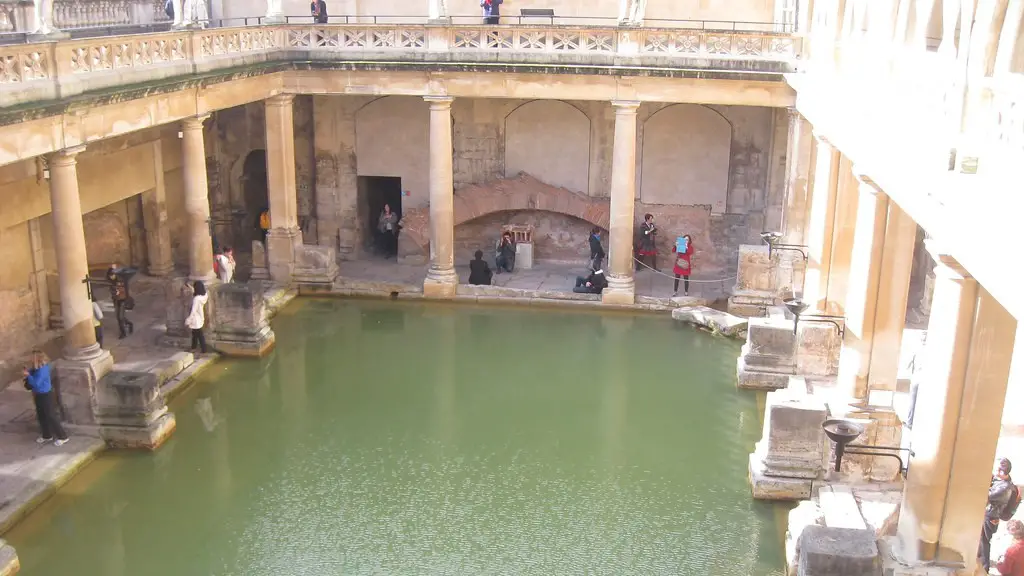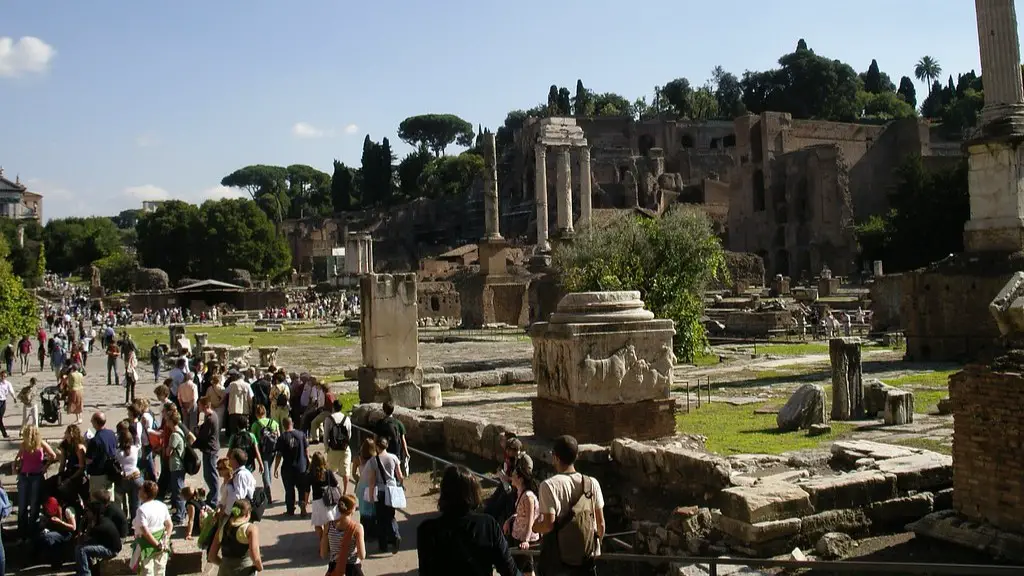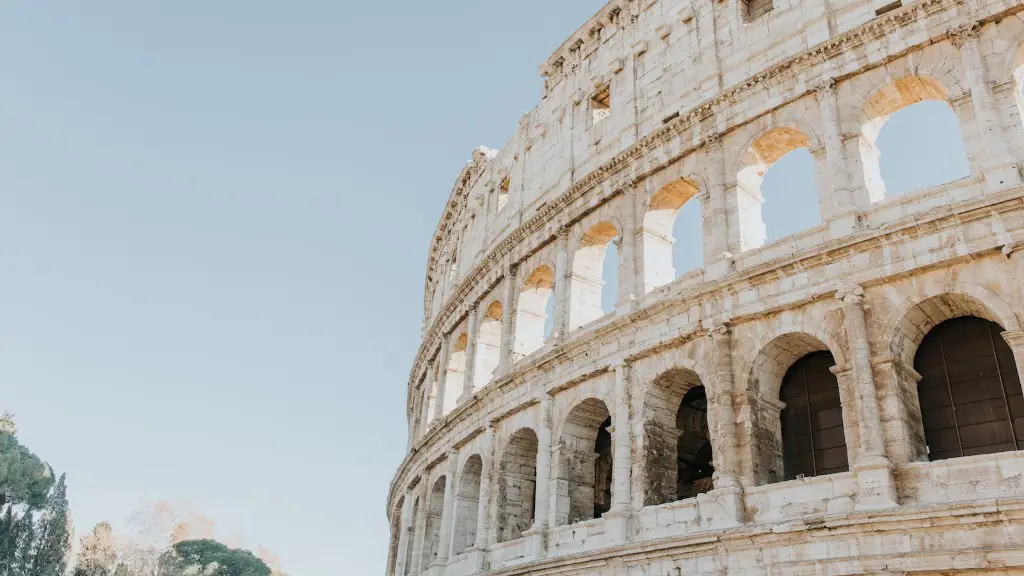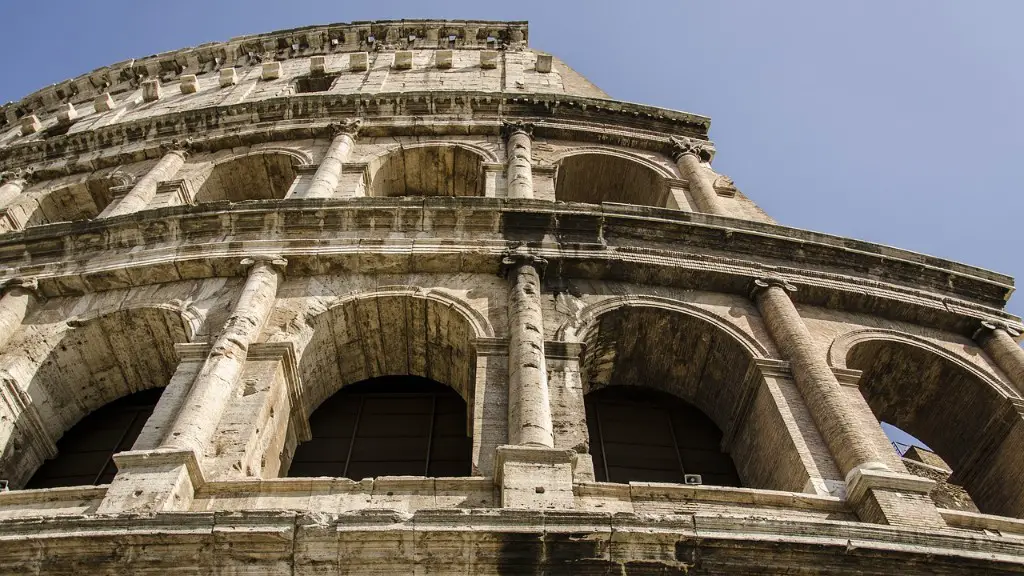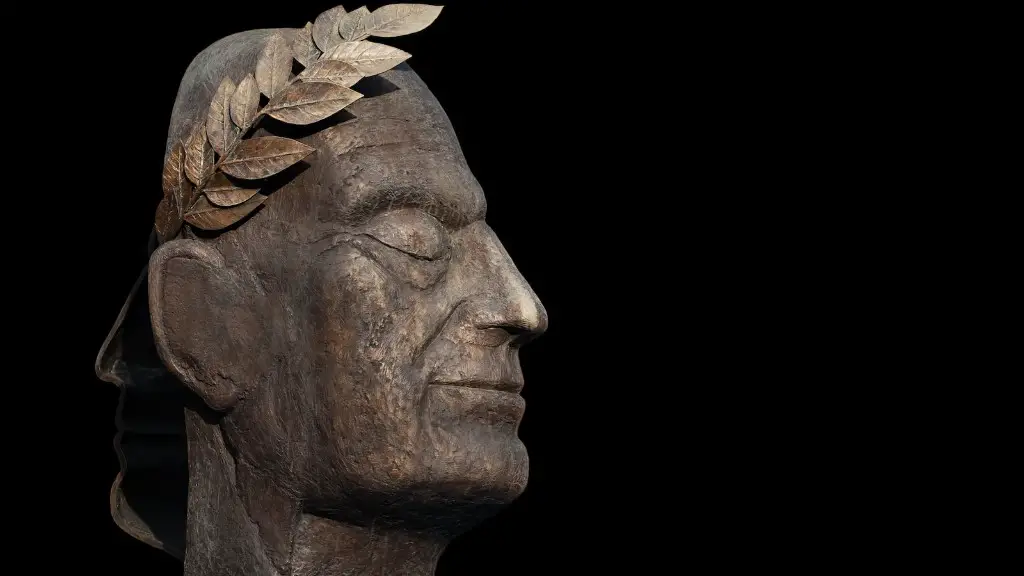No, the ancient Romans did not speak Italian. Italian is a relatively new language, having developed from a blend of Latin, Greek, and other languages spoken in the Italian peninsula during the Middle Ages. By contrast, Latin was the language of the Roman Empire, spoken throughout its territory in the ancient world.
The ancient Romans spoke a language called Latin. While Latin is a dead language, it is the predecessor of the modern Romance languages, including Italian. Therefore, it is likely that the ancient Romans would have understood some Italian, although they would not have spoken it fluently.
When did Romans start speaking Italian?
The Italian language as we know it today began to develop after the fall of the Roman Empire in the 5th century. Prior to this, Latin was the language that was imposed across the empire. However, after the fall of the Roman Empire, different dialects of Latin began to develop in different parts of Italy. Over time, these dialects evolved into the modern Italian language.
Latin is a language that was spoken by the ancient Romans. As the Romans extended their empire throughout the Mediterranean, the Latin language spread. By the time of Julius Caesar, Latin was spoken in Italy, France, and Spain.
Did people in Rome speak Italian
The Roman Empire fell in 476 AD, and over the centuries, Vulgar Latin continued to evolve into various regional dialects. By the 9th century, these dialects had become so different from each other that people could no longer understand each other. Italian began to emerge as a distinct language by the 10th century. By the 13th century, it was the dominant language in Italy.
It is interesting to note that historians have stated that Latin really became a dead language around 600-750AD. This is in line with the diminishing Roman Empire where few people could actually read, and the Italian, French and Spanish spoken language was rapidly evolving. This period marks the end of the Roman Empire and the beginning of the Middle Ages.
Are all Italians descended from Romans?
It is interesting to note that there are many Italians alive today who are directly descended from people who lived in Italy during the Roman era. However, it is important to note that most (if not all) of these individuals will also have some admixture from other European peoples. This is an important reminder that the Roman era was a time of great cultural exchange and that the people of that time were not isolated from the rest of the world.
The Latins were a group of people who lived in Rome and became known as Romans around 600BCE. They were formed into a Republic in 509BCE and became a powerful force in the area. Around 750’s – 600 BCE, the Latins started to become known as Italians and their identity as an Italian people started to form.
Did ancient Latin sound like Italian?
It is generally agreed that classical Latin sounded more like Spanish or Italian than English. This is because Latin is spoken with two different systems, called “Classical” and “Ecclesiastical.” Classical Latin was used more for literature and was the predominant form until around the third century A.D. Ecclesiastical Latin, on the other hand, is used more for conversation and is still spoken today.
The Sumerian language was the language isolate and the oldest written language in existence. It was first attested about 3100 BCE in southern Mesopotamia and flourished during the 3rd millennium BCE. The language was used in a variety of ways, including as a spoken vernacular, as a literary language, and as a ritual language. It influenced the Akkadian language and other languages of the region.
What did Romans speak before Latin
Oscan was one of the most widely spoken Italic languages before the spread of Latin. It was prominent in Bruttium, Lucania, Campania, Samnium, and elsewhere throughout central and southern Italy. Oscan languages are no longer spoken today, but they have left some influences on the Italian language.
A dialect is a variety of language that is spoken in a particular area or by a particular group of people. Dialects are often used in writing, as they can be a more accurate representation of how people actually speak. The earliest examples of vernacular writing in Italy date back to the 9th century, when the dialect spoken by Dante in his work began to replace Latin as the language of culture. This means that modern Italian descends from the 14th-century literary Florentine dialect.
Why did Latin become Italian?
Modern Italian is a direct descendant of Latin, the language of the Roman Empire. After the fall of the Roman Empire, Latin continued to be used for most writing. However, a different version of Latin, Vulgar Latin, became more commonly spoken by the average person in parts of Italy. This eventually led to the development of Classical Italian.
It is interesting to note that Latin essentially “died out” with the fall of the Roman Empire. In reality, it transformed first into a simplified version of itself known as Vulgar Latin, and then gradually into the Romance languages: Spanish, French, Italian, Portuguese, and Romanian. Thus, Classical Latin gradually fell out of use.
Who spoke Latin originally
Latin was originally spoken by small groups of people living along the lower Tiber River. As the Roman Empire expanded, Latin spread throughout Italy and then to other parts of Europe and Africa. Today, Latin is used as a language of scholarship and the Catholic Church.
Italians share a common culture, history, ancestry and language. Their predecessors differ regionally, but include the ancient Greeks in Magna Graecia, the Etruscans in northern Italy and, most notably, the Romans in central Italy, who helped create and evolve into the modern Italian identity.
Does Italian count as Latino?
There is some debate over who exactly qualifies as a “latino.” Among the Romance languages are Italian, French, Spanish, Portuguese, and Rumanian. Therefore, all Italians, Frenchmen, Spaniards, Rumanians, and Portuguese, as well as all those Latin Americans whose language is Spanish or Portuguese (an English-speaking person from Jamaica would not qualify) are latinos.
There is a large Hispanic population in the United States, but not all of them are latinos. For example, a person from Spain would be considered a latino, but a person from Brazil would not be.
What counts as a “Romance language” can also be up for debate. Some people include Catalan and Occitan, while others do not.
The Southern Italians are closest to the modern Greeks in terms of genetics, while the Northern Italians are closest to the Spaniards and Southern French. This is due to the fact that the Southern Italians have more genetic overlap with the Greeks, while the Northern Italians have more genetic overlap with the Spaniards and Southern French.
Final Words
No, the ancient Romans did not speak Italian. They spoke Latin.
It is not known for certain if ancient Romans spoke Italian. It is possible that they spoke a dialect of Latin that eventually evolved into Italian, or they may have spoken a different language altogether.

